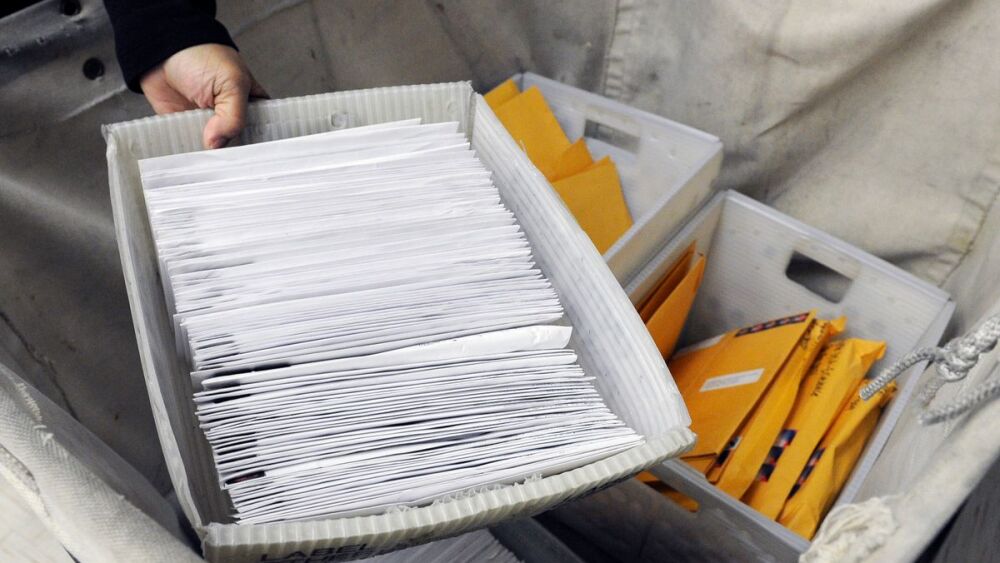By Marisa Endicott
The Press Democrat
SONOMA COUNTY, Calif. — New rules are now in place for processing mail coming into the Sonoma County jail, the result of a lawsuit filed against the county and the Sheriff’s Office by the Human Rights Defense Center, a national nonprofit that advocates for people in detention and sends publications on prisoner rights to those inside.
The organization took issue with the jail’s prior policy, which it called “unconstitutional” and “unduly broad,” after dozens of its informational brochures, letters and publications addressed to inmates at the Main Adult Detention Facility were rejected between October 2023 and 2024 — without proper explanation or recourse to protest, according to the Jan. 10 complaint.
Sonoma County Sheriff’s Office spokesperson Sgt. Juan Valencia said that the jail has accepted materials from the Human Rights Defense Center and that the rejected mailings had actually been flagged by inmates who hadn’t requested the information. The purpose of strict rules around mail, he said, is to “prevent contraband and drugs from entering a secure facility and to protect staff and inmates.”
People have dipped letters in drugs or hidden them behind stamps, and staff has to look out for nude photos or materials that can be used to create weapons, Valencia said. Sorting carefully through mail, which has long been a common pathway for smuggling contraband into jails, “is very meticulous, but that’s how you prevent that stuff from coming in.”
Before turning to litigation, the Human Rights Defense Center first filed a claim for resolution over the alleged censorship. The county rejected that claim in August, leading to the more prolonged court fight. “The County evaluates every claim on its own merits,” Sonoma County spokesperson Matt Brown said, and “denies the allegations.”
He noted that the jail’s mail program “fully complies with the law” and “communication with the outside world is very important to the Sheriff’s Office.” Still, the county ultimately agreed to a consent decree directing the jail to accept all mail to individual inmates from any publishers in the absence of a clear safety or security risk.
It prevents the jail from rejecting mail for including staples or mailing labels and requires officials to provide an explanation and appeals process for denied deliveries. The county agreed to pay $350,000 to cover damages and attorneys’ fees as part of a settlement approved June 12 by the Board of Supervisors.
The county’s costs for its own outside counsel in the case came to roughly $35,000. In 2020, Human Rights Defense Center similarly sued Napa County over its jail mail policy and prevailed with $256,000 in attorneys’ fees and costs awarded. Sonoma County used the same law firm as Napa, Santa Rosa-based Bluestone, Faircloth and Olson, to defend itself in its case.
Human Rights Defense Center Executive Director Paul Wright was pleased with the outcome. “They’re now delivering our books and magazines. We vindicated the Constitution, and we vindicated our free speech rights and for people inside and other publishers,” he said. “Now we can get back to publishing our magazines.”
The Sonoma County jail’s mail rules detail specific reasons for rejection, including materials that “advocate violence or a security breach,” “literature that could incite racial unrest” and any content that is “sexually explicit” or concerning “unlawful gambling” or “the manufacture or use of weapons, narcotics, or explosives.”
Other guidelines are broader, including “any material with content that could reasonably demonstrate a legitimate government interest in rejecting the material.” Now, the mail policy, updated in June, now outlines a detailed appeals process for cases where mail is rejected.
Previously, new books were only allowed if sent from Amazon or Barnes & Noble, but now are acceptable from any publisher or distributor. Other restrictions, especially for personal mail, which wasn’t subject to the lawsuit, remain as they were.
Human Rights Defense Center, founded in 1990, produces two publications, Prison Legal News and Criminal Legal News, which cover news and analysis about detention facility conditions, relevant court opinions, protections and legal remedies as well as reentry resources.
It has sent its materials “to incarcerated persons in more than 3,000 correctional facilities in all 50 states, including at death row housing units and ‘supermax’ prisons,” the complaint noted. “In its more than 34-year history, (Human Rights Defense Center) is not aware of and has never been notified of any security incident caused by any of its publications or correspondence at any jail, prison, or other detention facility.”
The organization contends its publications help people inside by educating them on their rights, and that having access to a wide range of reading materials keeps inmates from sitting idle behind bars, which can lead to conflict.
Human Rights Defense Center has a history of successfully suing jails and prisons over mail censorship, including in at least 10 California counties and at the state level. There has been a spate recently, with at least two cases filed earlier this year in Colorado and Washington and another last fall against the New Mexico Corrections Department.
“It’s kind of hard for me to believe that 35 years later, we’re still suing jails over publication bans,” Wright said. “Unfortunately, this is an increasing trend that we’re seeing,” with the rise of mail digitization and access to media on tablets in jails as a frequent reasoning to limit paper publications going inside.
That issue did not come up in the Sonoma County lawsuit, but the county noted that tablets are an important resource for promoting inmate communication.
—
©2025 The Press Democrat (Santa Rosa, Calif.). Visit www.pressdemocrat.com. Distributed by Tribune Content Agency, LLC.





